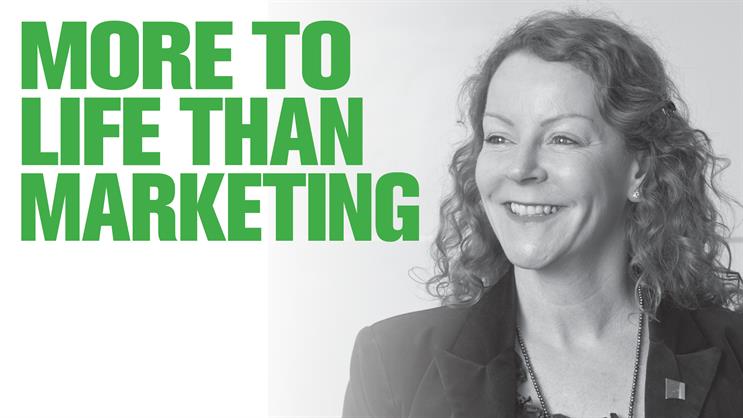
Find out who else is in our Power 100
I am very fortunate and privileged to be able to mentor for The Marketing Academy and others across the industry. When I ask the inevitable question: "Where do you see yourself in 10 years?" I get pretty similar answers. Ten years seems an unfeasibly long time, so people are quite startled at the prospect of thinking about it; then, when pushed, nine times out of 10 the answer is "a marketing director".
What I want to challenge, for people a few years into their marketing career, is the notion that the epitome of success is leading a marketing function.
Aiming for chief executive
I want marketing people to move to the commercial side of the business and gain the experience early on, in their 20s and early 30s. This would enable them to move between functional seniority and running bigger parts of a company until they become the chief executive.
Is marketing the end in itself, or is it the servant of the business and, actually, the customer?
Now, I am sure the purists among you may be wondering how you get functional expertise if you move into general management too soon. But is marketing the end in itself, or is it the servant of the business and, actually, the customer?
Also, surely if you have the broadest experience, this will better deliver for both? Or you might suggest that businesses would be better if they had more marketing experts running them. I agree – but increase the chances of this happening by complementing marketing skills with commercial experience.
Marketing cul-de-sac
People find comfort in being experts in one discipline, and that is very good indeed if you know, beyond all doubt, that you won’t ever want to run a very large, FTSE 100 or 250, company. However, if you were in your late 20s with some ambition, how would you know that? And the longer you go without running a business or part of a business, the further you are going into the marketing cul-de-sac; there may come a time when you can’t turn round and get out without running into a lot of difficulty.
Throughout your career, one of the important things is, wherever possible, to make decisions that keep your options open. Try to ensure that you haven’t inadvertently closed off routes that you might like to take, which, for one reason or another, you hadn’t contemplated before. The longer you stay as a pure marketer and spend time moving from one discipline within the function to another, you are, by definition, limiting your ability to get to the very top in your company.
The thing that always strikes me is not that people lack ambition but that they are reluctant to admit it, even to themselves.
Now I know someone is going to tell me "X person became CEO never having worked anywhere else than marketing". Well bloomin’ good on them. They must be stellar, and there will always be companies where marketing is central to the business, so it’s less of a risk for a board to choose a marketing person to run it. Nonetheless, if you want to maximise the chances of becoming the CEO of the biggest companies in the world, the sooner you get yourself a P&L (no matter how small), the better. You can then progress to running a division, and then a bigger division; you are in the driving seat and freer to choose how far you want to go.
Reluctance to admit ambition
Thinking back to those being mentored, the other thing that always strikes me is not that people lack ambition, but that they are reluctant to admit it, even to themselves. In some cases, it even goes unrecognised. This makes me wonder how we can help people voice it without creating monsters who all want to appear on The Apprentice. I have always tried to encourage voicing ‘romantic notions’ – talking about what success means to you in a way that isn’t so definite, but does describe the type of responsibility or mission you want to aspire to. It just doesn’t need a job title, which can be daunting.
The two thoughts are, of course, related. If people haven’t admitted to themselves that they want to ‘go all the way’, to be in charge, then they are more likely to make decisions to stay in the functional cul-de-sac.
Only when they are enjoying the wonder of it (for it is wonderful) do they realise that they don’t want to end there, but to go further still.
Move beyond marketing
What does a successful career need to look like and at what point will you want to move beyond marketing?
So be honest with yourself. What does a successful career need to look like and at what point will you want to move beyond marketing? I realise it is sort of odd to write that in our industry magazine, but this whole article could apply to any business function.
You may decide that you cannot possibly imagine not doing what we all love so much every day, but just think it through. Anticipate when you might want to search for a bigger challenge, and prepare yourself for it.
Broader commercial experience
Don’t be content with a career in marketing alone. Get some broader commercial experience and you will be a better marketer, regardless. Moreover, you will not be limiting your future potential. While you are in marketing, be the very best you can be, naturally.
What British businesses need are people running them who think customer first and last, and that will most likely come from those of us who have spent some of their days doing just that.
So have ambition and get commercial experience: we, and all our big companies, will be much better off for it.



.jpg)
.jpeg)
